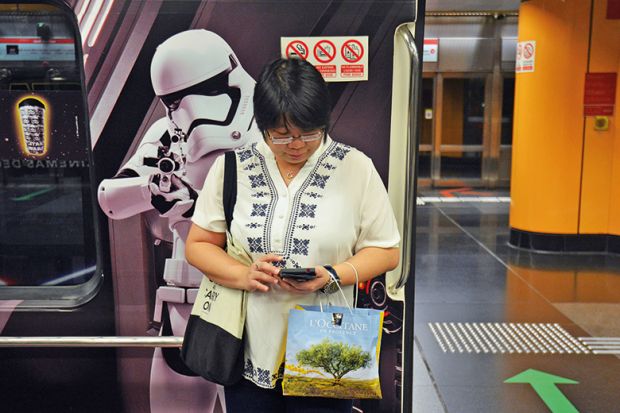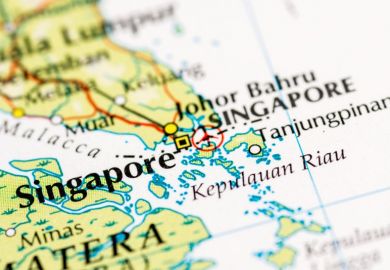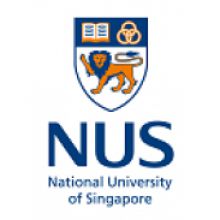To many, the idea of pushing through significant changes at Asia’s most highly ranked university would be nothing short of madness. But, even though the National University of Singapore has topped Times Higher Education’s Asia University Rankings for three years on the trot, the new leader of the city state’s flagship institution could not be calmer about rocking the boat.
Tan Eng Chye, who became NUS’ president in January after more than a decade as provost, the institution’s number two position, said that he was not afraid to rethink the university’s entire approach to teaching in order to “future-proof” his 28,000 students for a world increasingly shaped by digital technology and automation.
“Things are moving very fast in the external environment and we cannot afford to keep still,” said Professor Tan. “The fourth industrial revolution is crucial. My colleagues know this and they understand that we must change with the times because of it.”
Professor Tan, who completed his undergraduate degree at NUS and has been on the faculty since 1985, said that his predecessor, Tan Chorh Chuan, had “set very strong foundations for the university”, pushing it up to 22nd in the THE World University Rankings, up 18 places in just five years. But Professor Tan said that he “will have to take it much higher”, acknowledging that “certainly, there’s pressure on me to continue to do better”.
His first priority, he told THE, will be to introduce “set skills” across the entire university curriculum.
“Much to the angst of some students, I have made statistics as well as computational thinking or programming compulsory for everyone, regardless of what course they do,” Professor Tan said.
In accordance with Singapore’s goal of creating a sustainable knowledge economy, Professor Tan’s new mandatory requirement means that even art and music students will be required to cover some level of computational thinking – for instance, understanding algorithms in everyday life.
“Some students don’t react well, but it’s good for them to be sensitised,” he said. “They may not have to do programming [when they graduate] but I think in this new world where technology is really disrupting our everyday life it is good for a university student to have some understanding.”
Moving away from the reading and regurgitation approach to learning traditionally loved within Asian education systems, Professor Tan also wants to put more focus on “experiential training”.
As provost, last year he helped to introduce a “co-op programme” for students on data science, business and information security courses, requiring them to spend as long as 18 months of their four-year degree on part-time internships within industry.
Professor Tan intends to roll this out across all disciplines, with the hope that undergraduates will learn how to deal with “real-life problems” and bring those industry problems back to the university to solve.
In his last two years as provost, Professor Tan also introduced what he called a “roots and wings” approach to teaching, which requires every subject to consider how it can develop students’ personal skills, such as concentration, perseverance and how to engage with others.
It is these soft skills that will ensure Singapore does not fall behind its Asian competitors in the future employment landscape. “No question, China will be changing very quickly, and if we want to stay ahead we need to move just as quickly, if not faster,” Professor Tan explained.
While a strong international outlook has kept NUS at the top of its game for many years, the university has been the subject of criticism by Singaporeans who claim that the nation’s top learning institutions have neglected their local role.
Whether or not this was once the case, Professor Tan denied that there was any problem with local engagement in recent times.
“To us, that Singapore identity is very critical,” he said. “Just to give one example, in the past four years the faculty of arts and social sciences alone offered 125 modules on Singapore studies.”
Researchers also have financial incentives to relate their work to issues beneficial to the local community, he noted. “In the past two years, arts and social sciences alone published 200 papers on Singapore-related subjects.”
Above all, preparations made for future graduate skills will benefit all Singaporeans in terms of the economy, Professor Tan said. “Students today will graduate at 22 and most likely work until they are 70,” he said. “We cannot train them up in just one trade any more.
“My key challenge is how do I prepare my students to be adaptable? How do I train them to have a strong sense of perseverance? With soft skills.”
Register to continue
Why register?
- Registration is free and only takes a moment
- Once registered, you can read 3 articles a month
- Sign up for our newsletter
Subscribe
Or subscribe for unlimited access to:
- Unlimited access to news, views, insights & reviews
- Digital editions
- Digital access to THE’s university and college rankings analysis
Already registered or a current subscriber?











